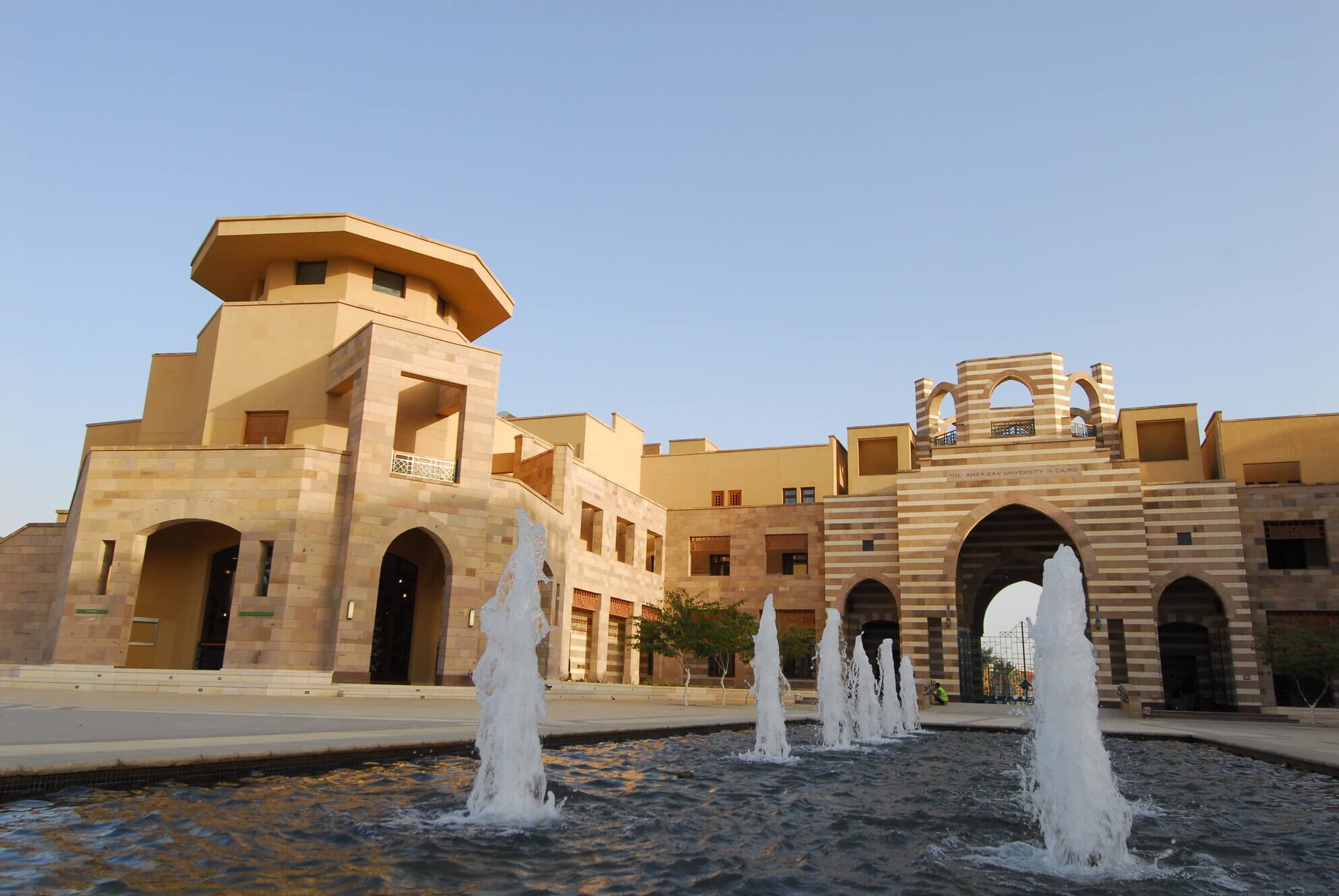March 12, 2015, Cairo – Experts at the American University in Cairo (AUC) emphasized on Egypt’s great potential of renewable sources and how introducing hybrid sources of energy on the short and long terms is best to solve future energy crises and protect the environment in Egypt . The media roundtable discussion, "Behind the Headlines,” titled “Renewable Energy: Challenges and Opportunities for Egypt’s Energy Problems,” featured Mohamed Salah El Sobki, executive chairman of the Egyptian New and Renewable Energy Authority (NREA) and AUC experts: Salah El Haggar, professor of energy and sustainable development and chair of the Department of Mechanical Engineering; Salah Arafa; professor of physics, School of Sciences and Engineering and Mohamed Amr Serag El Din, professor of thermo-fluids and energy in the Department of Mechanical Engineering and chair of the Department of Petroleum and Energy Engineering. The roundtable was moderated by Randa Abu Alazm, Al Arabyia and Al Haddath Cairo Bureau Chief and AUC Alumna.El Sobki explained how Egypt’s potential renewable sources of energy could cover three times the country’s current needs, “Our national plan targets covering 20 percent of the total energy consumption from renewable sources of energy by 2022 and to increase that percentage to more than 35 percent by 2035, as Egypt is blessed with 9 to 11 hours of sunshine per day and a high speed of wind that reaches 10 meters per second.”
El Sobki added that the government has been working throughout the past 15 years on different projects of renewable energy, “the government has recently issued a number of legislations to increase the use of renewable energy sources. The government introduced the feed-in tariff for purchasing electricity produced from renewable energy sources, which aims at encouraging private investment in the renewable energy field, to reach a maximum capacity of 4,300 megawatts (six times more than the existing output) over the course of three years.”
Experts debated the pros and cons of the available sources of renewable energy. El Haggar and Arafa believe that Egypt needs to invest in solar grids and biogas energy plants, not only due to the abundance of waste in different forms but also to diversify the different sources of energy. “With 100 million tons of organic waste, produced in Egypt, there are so many opportunities to produce clean energy,” said El Haggar
El Haggar believes that we have to think of the short, medium and long term plans yet work fast on the short term plans, “we can’t wait for five years for solutions, while we already have an energy problem in Egypt, so we should start today by aiming for a 20 percent reduction of our water and energy usage. In order to reduce a great amount of conventional energy, we have to mix between solar and bioenergy on the short term.” El Haggar pointed out to three main factors that hinder solving the energy problems in Egypt, “the lack of practical vision, adequate management of resources and proper maintenance.
Serag El Din focused on wind energy, relating the advantages of using wind farms to generate electricity, where in Zaafarana wind farm, located on the gulf of Suez, the wind speed reaches 10 meters per second which is higher than the average speed. He also discussed the unpredictable nature of the wind, which impacts the amount of energy produced. “Using renewable energy is not only about finding alternative sources to conventional energy, like petroleum, but also about preserving the environment. Using petroleum is still easy and cheap but at one point we will have to deal with its real price when we are faced with its effects on the environment. Unlike coal for example, solar energy doesn’t negatively change the eco balance.” He argued that we don’t have an energy crisis but rather a lack of direction to use available and renewable sources of energy.”
Serag El Din also stressed on the economies of renewable energy, “we have to study the consumers and examine their needs. Usually hybrid energy is the best way to utilize the resources and save energy. Serag El Din uses the Kuraymat solar power plant as the perfect example of using hybrid energy. Kuraymat, the only major grid-connected solar power project in Egypt, located nearly100 km South of Cairo, generates a capacity of 140 megawatts, including solar share of 20 megawatts.
Using multiple and hybrid renewable sources energy will definitely alleviate Egypt’s recurring energy problems, however experts agree that reducing the current consumption is a must and not a luxury.
Through national awareness, ElSobki believes that households could reduce 15 percent of their usage and factories could reduce 20 percent without affecting their lives. “In Japan following the Fukushima nuclear disaster in 2011, the Japanese managed to reduce the amount of energy they consume in three months to 18 percent and if the Japanese can do it, I believe we can as well,” he said.
Arafa believes the benefits of using renewable energies should be taught to young school children, “awareness should start at the youngest age, the future lies in the hands of the young Egyptian boys and girls.”
